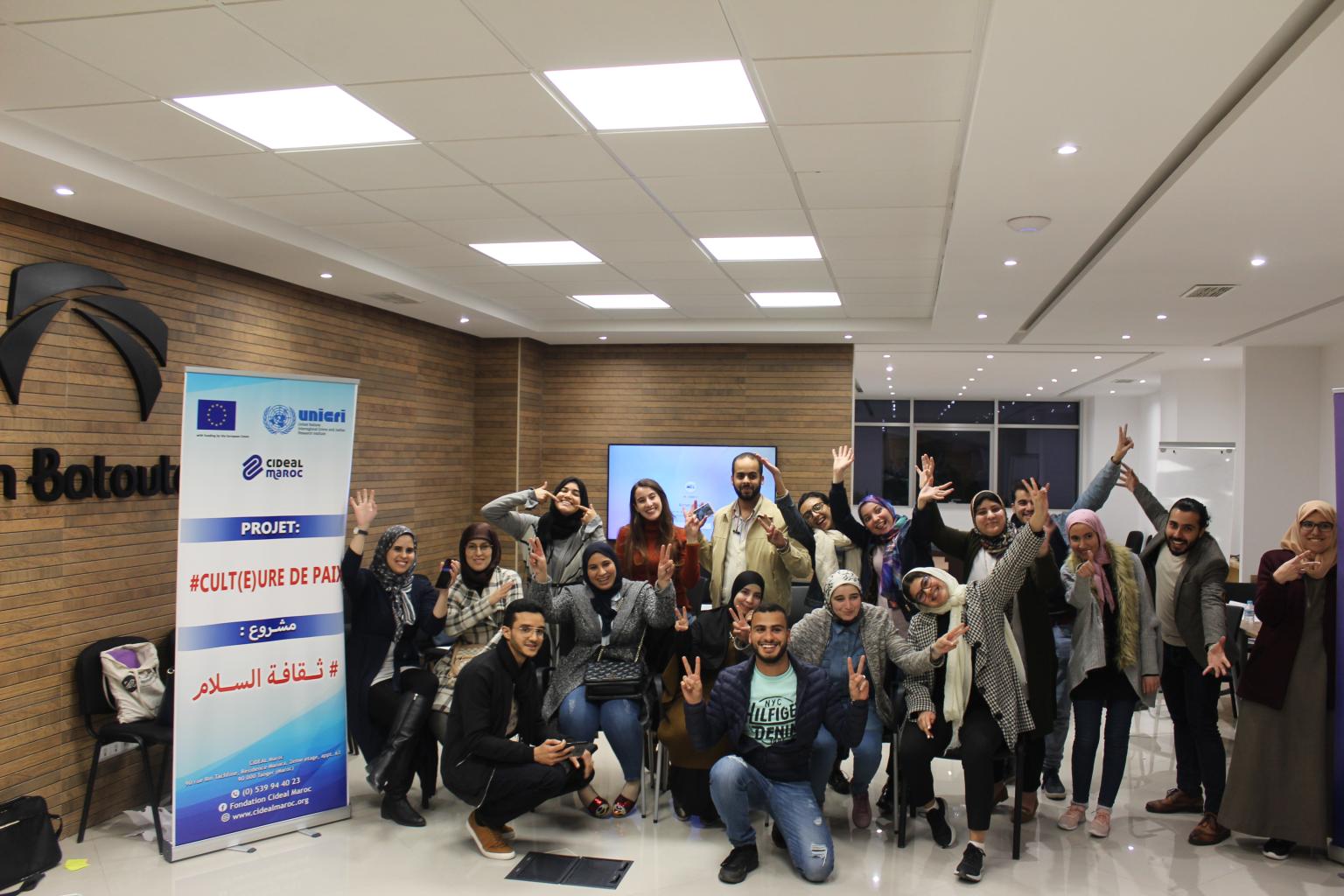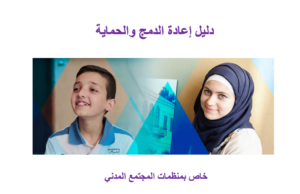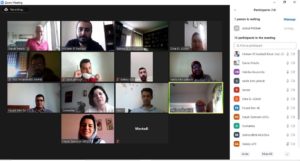As part of its mission to promote peacebuilding, conflict transformation, and countering violent extremism at the grassroots level, PVE for Peace joined efforts with CIDEAL-Maroc as part of a project titled “ The Culture of Peace” managed by UNICRI and CIDEAL Maroc and funded by the European Union. In this project, PVE for Peace implemented a number of activities that aimed at empowering local stakeholders to play an active role in both peacebuilding and violence prevention in marginalized communities and among at-risk youth.
A comprehensive Deliverables Package to Promote a Culture of Peace
PVE for Peace’s commitment to its mission was evident through the range of deliverables it produced under the Culture of Peace project. These deliverables not only equipped local Civil Society Organizations (CSOs) with the necessary tools but also fostered a broader understanding of peacebuilding and conflict transformation. The following were some of the key deliverables that were developed:
developed:
- Conflict Assessment: A deep understanding of conflict dynamics was crucial for effective peacebuilding. PVE for Peace’s conflict assessment not only identified underlying tensions but also offered insights into the root causes of conflict. This knowledge formed the foundation for targeted interventions that addressed the specific challenges faced by communities, paving the way for sustainable peace.
- Mapping of P/CVE Stakeholders: Collaboration and stakeholders’ engagement is a cornerstone of successful peacebuilding and P/CVE initiatives. PVE for Peace’s mapping of P/CVE stakeholders brought together diverse actors such as government agencies, NGOs, and community leaders who shared a common goal of promoting peace. This coordinated approach amplified the impact of their efforts and fostered a sense of unity in pursuing shared objectives.
- Training Manual for Local CSOs: PVE for Peace recognized the vital role that local CSOs play in shaping community dynamics. This comprehensive training manual empowered these organizations with the knowledge and skills needed to actively engage in peacebuilding and conflict transformation efforts. By equipping CSOs with effective strategies, the manual ensured that grassroots efforts contribute meaningfully to sustainable peace.
- Best Practices Guide on P/CVE: The best practices guide developed by PVE for Peace focused on contextualized approaches and strategies for preventing and countering violent extremism (P/CVE) that can be employed by local CSOs while adopting a whole-of-society approach. This guide served as a roadmap, enabling organizations to navigate the complex landscape of P/CVE in Morocco while adhering to principles of do no harm, peace, inclusivity, intersectionality, and respect for human rights.
- Capacity-building Program: PVE for Peace’s commitment to nurturing a culture of peace extended beyond documentation and assessments. The company’s active engagement with youth
 and CSOs was demonstrated through a series of impactful training sessions. Over the course of the project, PVE for Peace organized 10 PVE and peacebuilding trainings aimed at empowering both youth and CSOs. These trainings provided a platform for participants to enhance their understanding of peacebuilding principles, learn practical tools for conflict resolution, develop action plans and community initiatives, and foster meaningful connections with like-minded individuals and organizations.
and CSOs was demonstrated through a series of impactful training sessions. Over the course of the project, PVE for Peace organized 10 PVE and peacebuilding trainings aimed at empowering both youth and CSOs. These trainings provided a platform for participants to enhance their understanding of peacebuilding principles, learn practical tools for conflict resolution, develop action plans and community initiatives, and foster meaningful connections with like-minded individuals and organizations.
Conclusion
The work accomplished by PVE for Peace under the Culture of Peace project was a testament to the tangible impact that collaborative initiatives could achieve. By equipping local CSOs with the knowledge, tools, and networks necessary for effective peacebuilding and conflict transformation, PVE for Peace paved the way for resilient communities in Morocco through action plans and community initiatives conducted by the participants as a result of their active engagement in the project.









Leave a reply